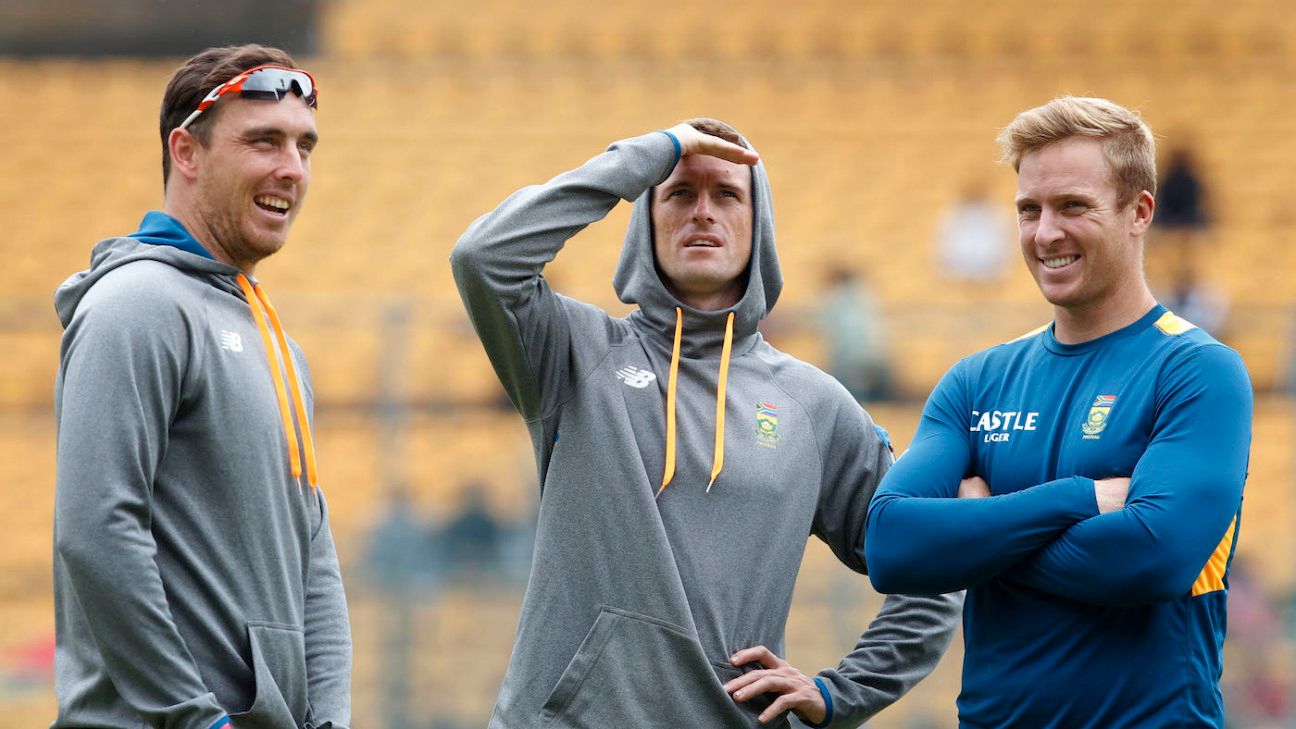
English cricket looks set to embrace a return towards allowing two overseas players across county competitions as it comes to terms with the implications of Brexit.
The UK officially left the EU at the end of January. While most regulations remain in place, it is currently anticipated that existing trading agreements - including the Kolpak loophole - will be closed when the transition period between the EU and the UK closes at the end of December.
As a result, the ECB has recently issued guidelines stating its expectation that all Kolpak registrations will be invalidated at the end of 2020. This will apply irrespective of the length of an individual player's contracts with their county.
ALSO READ: The Kolpak rule explained
The ECB hopes to minimise the disruption of such a change - and, perhaps, reduce the prospects of a legal challenge - by relaxing the regulations regarding the signing of overseas players. Current proposals - and they are no more than that at this stage - suggest counties will be entitled to field two overseas players in all three domestic county competitions from 2021.
At present, one overseas player is eligible per team in the County Championship and the One-Day Cup, while two are eligible in the T20 Blast. The last time two overseas players were allowed across county competitions was in 2007. It was changed, in part, due to the proliferation of Kolpak registrations. Three overseas players are permitted per team in the Hundred, and several players likely to be affected by the changes were picked up in October's player draft for the new competition's inaugural season.
This compromise has been greeted positively by the Professional Cricketers' Association (PCA) and several of the more powerful counties. So while it remains possible that an individual (or group of players) with a contract lasting beyond the deadline could launch legal action against the ruling - ESPNcricinfo is aware of agents who have taken legal advice on the issue on behalf of their clients - it seems they will not have the full support of their union in making such a challenge.
"The PCA recognises the legal position of the UK's withdrawal from the EU," Daryl Mitchell, the PCA chairman, said. "These developments will bring England more closely in line with other first-class systems regarding primarily having nationals of that country playing as locals.
"A number of Kolpak registered players have committed to a career in England beyond 2020 and their needs as PCA members are very important to us. Our view is increasing overseas players to two per county in the County Championship and One-Day Cup would be a positive outcome. This would allow opportunities for these players to continue their careers in England and help to maintain standards in the county game."
In the case of the most high-profile players - the likes of Hashim Amla, Simon Harmer or Morne Morkel - the change of criteria would probably make little difference. Instead of being registered as Kolpak signings, they will simply be reclassified as overseas players. One or two other less high-profile Kolpak registrations are also understood to have a clause in their contracts which guarantees them continued employment as the club's overseas player.
ALSO READ: Life as a Kolpak - The Cricket Monthly
While there are likely to be around 17 Kolpak registrations in county cricket in 2020, there are roughly 30 more cricketers whose eligibility is dependent upon a European passport, either through ancestry or a spouse. As things stand - and the ECB changed its 'indicative position' this week after legal advice - this larger group will be eligible for registration in county cricket beyond 2020. All players with British passports, settled or pre-settled status will also have the right to play as local cricketers beyond 2020. As a result, it is quite possible the suggested changes will result in no net reduction in the number of players involved in the county game who are not eligible for England.
There may be positive consequences for other nations, however. If the security offered by Kolpak and EU deals is reduced, it may well be that it dissuades other players from signing such deals or persuades some of those that have to return to the country in which they developed and commit to the international side there. This could prove especially relevant to South Africa, from where a disproportionate number of Kolpak registrations have come. Ironically, the PCA's new chief executive, Tony Irish, was previously in a similar role at the South African Cricketers' Association.
All the ECB's plans are subject to change depending on the outcome of trade talks. If, for example, the UK and EU agree to extend the transition period or renew agreements on familiar lines, it is not impossible the Kolpak loophole will be extended. Equally, it could be that new trade deals with India and Australia allow more opportunities for cricketers from those nations.















 Phone: (800) 737. 6040
Phone: (800) 737. 6040 Fax: (800) 825 5558
Fax: (800) 825 5558 Website:
Website:  Email:
Email: 






